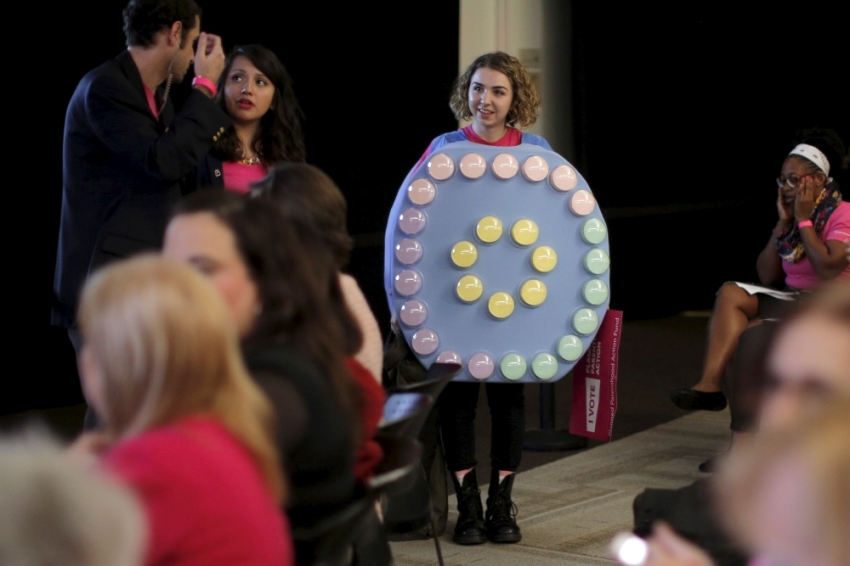Trump Admin. Cuts Ineffective Obama Teen Pregnancy Prevention Program Pushing Contraceptives, IUDs

President Trump is discontinuing the Obama administration's funding of dozens of teen pregnancy prevention programs that emphasize the use of contraceptives, deeming them ineffective.
Federal Teen Pregnancy Prevention program grants going to more than 81 organizations will be scrapped two years early, stripping $213 million from the fiscal year 2018 proposed budget, according to the Department of Health and Human Services. The funding was originally supposed to last until 2020, but an HHS spokesperson said earlier this week that those funds will disappear by June 2018.
"Given the very weak evidence of positive impact of these programs, the Trump administration ... did not recommend continued funding for the TPP program," a press release from the HHS read.
The TPP program was launched in 2010 to analyze and fund programs focused mostly on teaching young people, ages 10 to 19, how to use contraceptives and pushing them to embrace long-acting contraception including abortifacient inter-uterine devices and controversial chemical release implants. The program was billed as "evidence-based" and would be subject to government analysis and scrutiny, requiring reporting on effectiveness as compared to control groups. Two kinds of grants were given and evaluated: replications of existing programs and research on new ones.
But as the HHS report that was released a few months ago that surveyed the TPP programs' effectiveness on Office of Adolescent Health website shows, the findings reveal that the TPP grantees produced virtually no change in results and in some cases an increase in sexually risky behavior among teenagers appeared.
The Federalist noted Monday that, "[o]nly four of the more than 75 replications were found effective, and even then they were not found effective over time. Only eight of the 27 programs trying new approaches had even mildly positive results. Many of the programs weren't even evaluated, with only 41 of the 102 grantees reporting results on effectiveness."
Yet many secular and left-leaning media outlets have framed the funding cutoff as a dangerous move that will cause teen pregnancies to rise, without citing any "evidence" from the government's own report.
The American Congress of Obstetricians and Gynecologists, a left-leaning nonprofit group that opposes parental notification before a child can undergo an abortion, urged the administration "not to turn back the clock" on progress. "It's as though the evidence and the facts don't matter," ACOG President Dr. Haywood Brown told The Washington Post.
Likewise, the St. Louis Post-Dispatch, Politico, Business Insider, The Independent, Forbes, Teen Vogue, Bustle, and NPR all reported on this story and not one mentioned the program's ineffectiveness, the Federalist noted.
Policy that is more focused on sexual risk avoidance — which was the status quo prior to the Obama era — will likely regain steam, particularly with the appointment of sexual risk advoidance education advocacy group ASCEND's Valerie Huber to a key post within the HHS. Huber now serves as the chief of staff to the assistant secretary for health at the Department of Health and Human Services.
CP reported in May that Congress was looking to increase spending for abstinence-based, SRAE programs, a move Huber praised.
"In light of the fact that 90 percent of all federal sex ed funding goes to programs that normalize teen sex, it's evident that our priorities are all wrong," Huber told The Christian Post in an interview back in December 2016.
A 2016 CDC report showed that teens who self-reported that they remained abstinent are much healthier on many notable fronts than their sexually active peers, and that a rising number of teenagers are opting to wait to have sex.
"The next Congress and administration have a real opportunity to change course in sex education policy in 2017. Let's hope they take it. Youth deserve the skills to achieve optimal health," she said at the time.



























